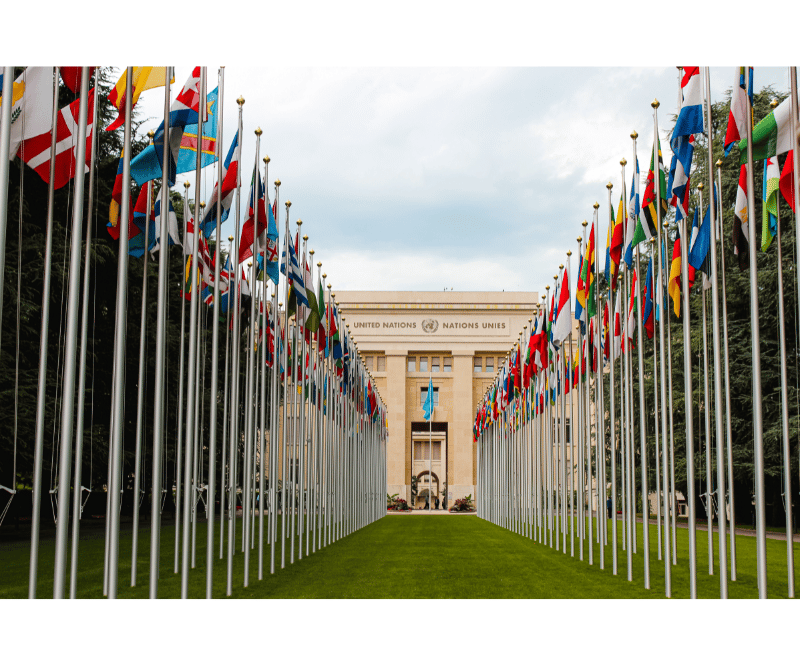The Prisoner's Dilemma: A Global Imperative for Collaboration
In a world increasingly marked by division and discord, the Prisoner's Dilemma serves as a powerful metaphor for the urgent need for international collaboration. This classic game theory scenario underscores the challenges and imperatives of working together on modern-day issues, from environmental crises to ethical dilemmas and social concerns. In this article, we delve into the Prisoner's Dilemma and its profound relevance to the complex web of global problems, illustrating the critical role of cooperation in a polarized world.
Crisis Mitigation Bureau
10/31/20233 min read


In an increasingly polarized world, the concept of cooperation among nations has never been more critical. The "Prisoner's Dilemma," a classic game theory scenario, offers valuable insights into the challenges and imperatives of international collaboration, extending its relevance to a myriad of modern-day issues – from environmental crises to ethical quandaries and social concerns.
The Prisoner's Dilemma, originally framed as a hypothetical situation in which two criminals must decide whether to cooperate or betray their partner, has become a compelling metaphor for international relations. It represents a world where individual nations, acting in their self-interest, often forego the greater common good. This dilemma is at the heart of the global discord that persists in addressing shared challenges.
The Paradox of Self-Interest
The essence of the Prisoner's Dilemma lies in the paradox of self-interest. Each nation faces a choice: whether to cooperate or defect. Cooperation, akin to both prisoners remaining silent, leads to mutual benefit. However, the temptation to defect, or pursue one's self-interest, can be overwhelming, as it may provide short-term gains at the expense of long-term sustainability.
Environmental Imperatives
Nowhere is the need for international collaboration more evident than in the realm of environmental issues. Climate change, a global crisis that affects all nations, epitomizes the Prisoner's Dilemma. Each nation has a stake in mitigating its carbon emissions, yet the temptation to prioritize economic growth over environmental responsibility persists. The dilemma is apparent: nations need to work together to address climate change, yet some opt to defect, leading to collective inaction and catastrophic consequences.
Ethical Quandaries
Ethical concerns are another facet of the Prisoner's Dilemma on the international stage. Consider the global debate on intellectual property rights, specifically concerning the COVID-19 pandemic. The development and distribution of vaccines posed a moral dilemma for wealthy nations with the resources to provide for all and developing countries with dire needs. The choice to cooperate by sharing vaccines and technology, or defect by prioritizing self-interest, reflected the ethical quandaries that persist in the world today.
Social Challenges
Social issues, such as migration and refugee crises, are also deeply intertwined with the Prisoner's Dilemma. When countries choose to defect by implementing restrictive immigration policies, they may relieve short-term domestic pressures, but they also contribute to the global humanitarian crisis. Cooperation in addressing these challenges, driven by empathy and shared responsibility, is often overshadowed by the temptation to prioritize national interests.
Modern Parallels
The challenges stemming from the Prisoner's Dilemma are not confined to a theoretical realm. In the real world, international organizations, diplomatic negotiations, and multilateral agreements aim to overcome the temptation of defection. The Paris Agreement, the United Nations, and countless other global efforts strive to foster cooperation among nations in addressing the most pressing issues of our time.
However, the polarized world and the rise of nationalist sentiments in some countries have made international collaboration more challenging than ever. Navigating the Prisoner's Dilemma in an era of heightened tensions requires innovative strategies, enhanced diplomacy, and a renewed commitment to finding common ground.
Conclusion
The Prisoner's Dilemma highlights a fundamental truth in today's world: the challenges we face are often collective, and the solutions require collaboration among nations. Whether addressing environmental crises, ethical quandaries, or social issues, the imperative is clear. The paradox of self-interest can no longer be an excuse for inaction.
To transcend the Prisoner's Dilemma, countries must recognize that their long-term interests are intrinsically linked to the global common good. Only through shared responsibility, empathy, and genuine collaboration can we overcome the polarized world and tackle the pressing issues that persist in our interconnected planet. The lessons of game theory can illuminate the path toward a more harmonious and sustainable global future, where cooperation is not a choice but a necessity.
(With AI Input)
Contacts
enquiry@economicnations.org
(xx) 98-11-937-xxx (On verification)
